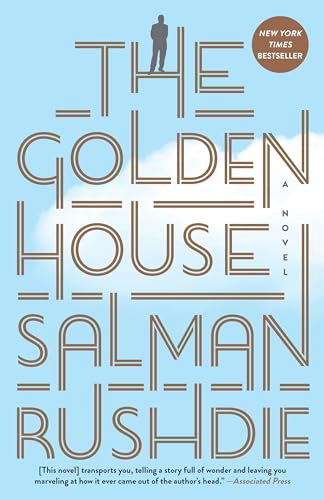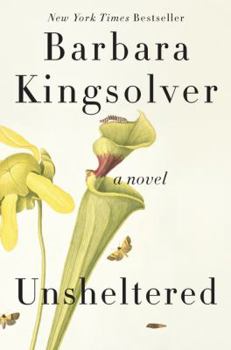My (not so) Perfect Life by Sophie Kinsella, 2017
After a heavy tome like Alexandria, I wanted something lighter.
I had read My (not so) Perfect Life a few years ago, but wanted to read it again (partly due to my obsession with Sophie Kinsella and desire to become the type of writer that she is).
Kinsella's novels are witty, unexpected and provide insight into English culture, which feeds into my fascination with other cultures.
The story centers around Katie Brenner, who grew up on a farm in Somerset, about a 3 hour drive from London. She moves to London and is intent on leaving behind her farmer self and transforms herself into sleek cosmopolitan Cat.
Despite the glossy images on Instagram and breathless reviews of her days in London to her loved ones, Cat is living in a tiny room in a flat share and doing mindless data entry at work.
The department head at her advertising agency is the glamorous Demeter, who does actually live the glossy life. Always stylish with the perfect family, Demeter knows the right people and eats at the newest restaurants.
Naturally, Cat covets Demeter's life despite the fact that Demeter is a boar at the office and her entire team resents her. Also naturally, Cat meets a dashing man.
The dashing man is Alex Astalis, who she later finds out after connecting with him over adult toys (actual toys for adults, e.g. drones, as the book clarifies) from a potential new customer is Demeter's boss.
They hit it off and she can be herself before she discovers who he really is. Cat is then made redundant and unable to afford her tiny room in London, forced to return to Somerset where her father and step-mother Biddy have opened a glamping site on their farm.
Demeter ends up at the glamping site with her family and Cat discovers that Demeter's life is not as glossy as she thought. Her family show her little interest or respect. She is strained because of work and Cat discovers that the many injustices that Demeter had inflicted at work had good intentions behind them.
There are twists with the band of co-workers (feckless Flora, worst-assistant Sarah) and Alex leaving for New York, but in the end, Cat gets her happy ending with a high power job in London and Alex declaring his love for her.
Alexandria: The City That Changed the World by Islam Issa, 2024
An epic of a tome that dives into the extensive history of Alexandria in Egypt, Alexandria is a compelling read that kicks off with ancient stories by Homer describing the geographic composition of Alexandria, including the island of Pharos. Alexandra the Great envisioned a great city to be built named after himself in 331 BCE.
Alexandria grew into a metropolis, where different ethnicities and nationalities lived together in peace. Greeks, Italians, Jewish, Coptic - all lived together in harmony.
The first library and largest collection of books, or scrolls, were housed in Alexandria. Scientists gathered in Alexandria. And of course, the lighthouse was invented in Alexandria.
A staple of all major cities, the tram line was invented by Muhammid Ali in 1863.
As someone who has never been particularly interested in history, Alexandria captured my imagination. It is told through stories within the bigger picture of the timeline of events.
Before reading Alexandria, a sentence such as the following would have made my eyes glaze over: "They could be rom any period, pharaonic, Ptolemaic, Roman, Byzantine, Ottomon."
Now, I understand these different periods and the landscape of European history. How a group of Arabs called themselves the Muslims, and started taking over lands. The Crusades and how they shaped the world. Insight into Napoleon's strategic mind through his obsession with the Alexandria the Great and his name-sake city
A memorable story of origin (from the multitude that fill the book), is the word assassin. The Nizari branch of Ismalil Muslims were murderers for hire and referred to as ḥašīšī, or 'hasish-eater' in Arabic.
Or when reading about St. Marks entering Alexandria in the mid-first century, I thought of St. Mark's Square, or Piazzo San Marco, in Venice. Then to find out that some Venetians had stolen and smuggled his body, covered in pork, from Alexandria to Venice was amusing.
Alexandria's rich history can best be summed up by trap artist Marwan Pablo's lyric: "I'm not from Egypt, me, I'm from Alexandriaaa." This feeling of pride is evident from Issa, who has painstakingly researched his homeland to capture its history, significance and richness of culture.
Leaving the Atocha Station by Ben Lerner, 2011
In preparation for my trip to Madrid, Spain, I wanted to immerse myself in a book about the city and culture that I last visited three decades ago.
A coming of age story about a poet who is in Madrid on a prestigious fellowship, Lerner (who happens to be a poet and was a Fulbright Scholar in Madrid) portrays the struggles of belonging and feeling like one is not good enough in Leaving the Atocha Station.
Adam Gordon is the young American in Madrid. He spends his days scribbling in notebooks and smoking pot wandering around the Prado and El Retiro park. He befriends a Spaniard named Arturo and his sister Teresa, and starts to date a Spanish woman named Isabel.
Gordon is as uncomfortable with himself as he is with the language. He lies to his Spanish friends to gain sympathies and cover insecurities, and wonders how truthful he is to even himself.
He tells Isabel and Teresa that he may stay in Madrid after his fellowship. His insecurities prevent him from being vulnerable and we slowly discover his reliance on tranquilizers and prescribed pills to control his anxiety.
He believes his relationship with Isabel to be casual and realizes that the reason they never talk about the future is because there is someone else in her life. To prove that he is not hurt by this, Gordon tells more lies and attempts to make Isabel jealous instead of expressing his true feelings, which he attempts to cover up with pills, pot and his own self doubt.
The end of Gordon's fellowship culminates in a panel event, where he is panicked and focused on not embarrassing himself. He practices phrases in Spanish to sound intellectual, not even sure what he means by the statements. When Gordon does allow himself to be present on the panel and comments on how writers do not need to experience what they write about as literature can reflect politics more than influence it, he delves back into his insecurities as he is asked a follow-up question.
By the end of the novel, Gordon has grown into himself. He finally feels like a poet, despite having been one all along, with his published a booklet of poetry with Spanish translations from Teresa. He no longer talks about his poor Spanish, using it as an excuse from being vulnerable. As Teresa points out indifferently, they have only spoken Spanish during the time they have known each other so he is quite proficient.
A good read, Leaving the Atocha Station was not what I expected in terms of being immersed in Madrid and its culture. It did remind me though, of the struggles to fit in and feelings of imposter syndrome while in my 20s and 30s.
The Exceptions by Kate Zernike, 2023
Investigative journalist Zernike covers the history of science academia from circa 1960 to 2000s. She delves into the history post James Watson & Francis Crick's discovery of the DNA sequence.
The book centers around Nancy Hopkins, a Harvard student who worked in Watson's lab at Harvard (including a memorable first meeting with Crick) before moving to MIT to purse her academic career.
The sexism outlined is not surprising. Women were considered intellectual inferiors who would eventually have no time for science as they focused on having babies and raising children.
The story of Hopkins is riveting as she build a successful career and then realizes that all the slights she faced as a woman. These include being paid less than men who 'have families to support', something female friends in the medical profession have also heard about salaries of their male counterparts.
The women are consistently treated as an inferior, being denied credit for her discovers and work, not getting equal lab space, and so on and so on. Once this realization settles in, she organizes a group of other female professors at MIT and they realize that their individual experiences are shared. That the challenges they face as women at the top of the scientific world has been due to systemic discrimination.
With the support of mentors and allies including Bob Birgeneau, Dean of MIT's School of Science, the women are able to prove the discrimination that they have faced through research and data, obtaining concessions for female professionals at MIT and setting an example for the rest of the science world.
Hopkins biography and her push for change at MIT make for riveting story telling. The deep dive into the science itself, as well as the detailed stories of other imminent scientists such as Barbara McClintock, Mary-Lou Pardue and Millie Dresselhaus, was interesting, but bogged the book down for me. If the story was half of its 300+ pages and only focused on Hopkin and her battle against MIT, it would make for a thriller.





















